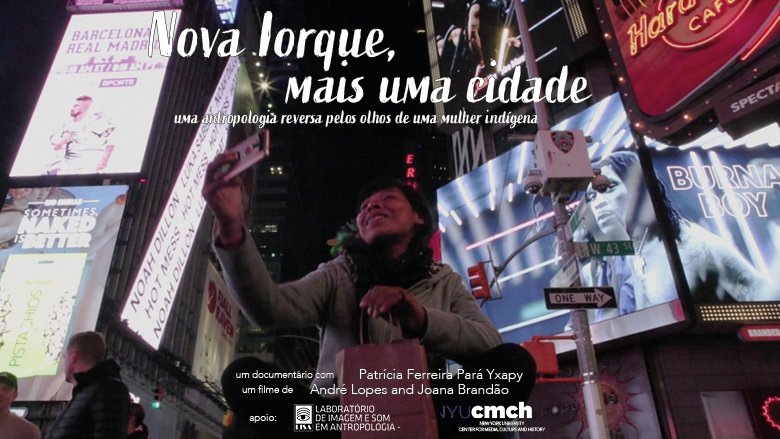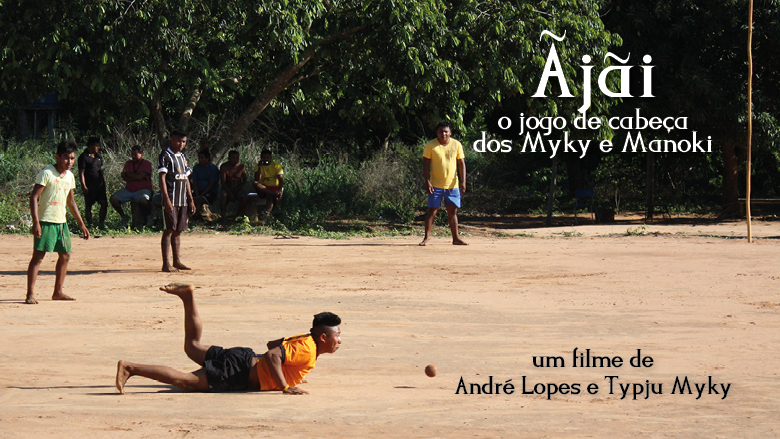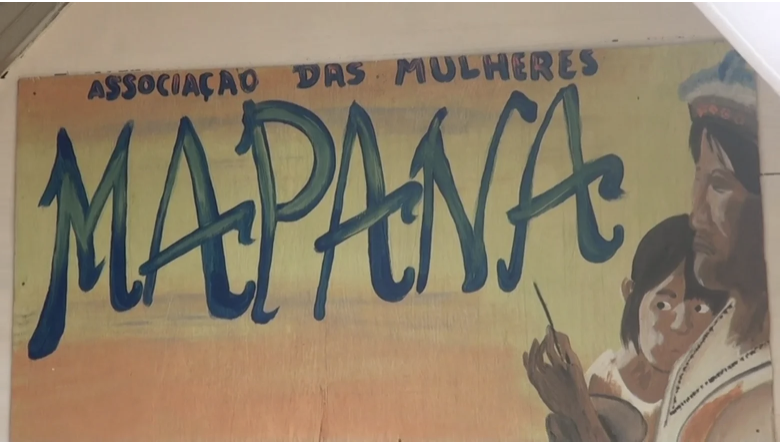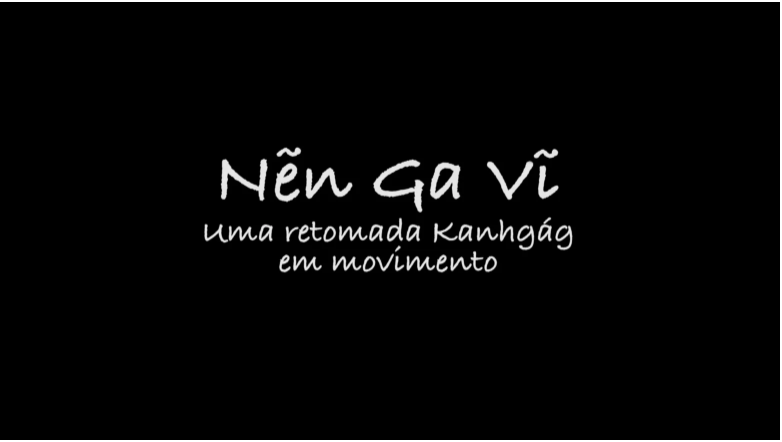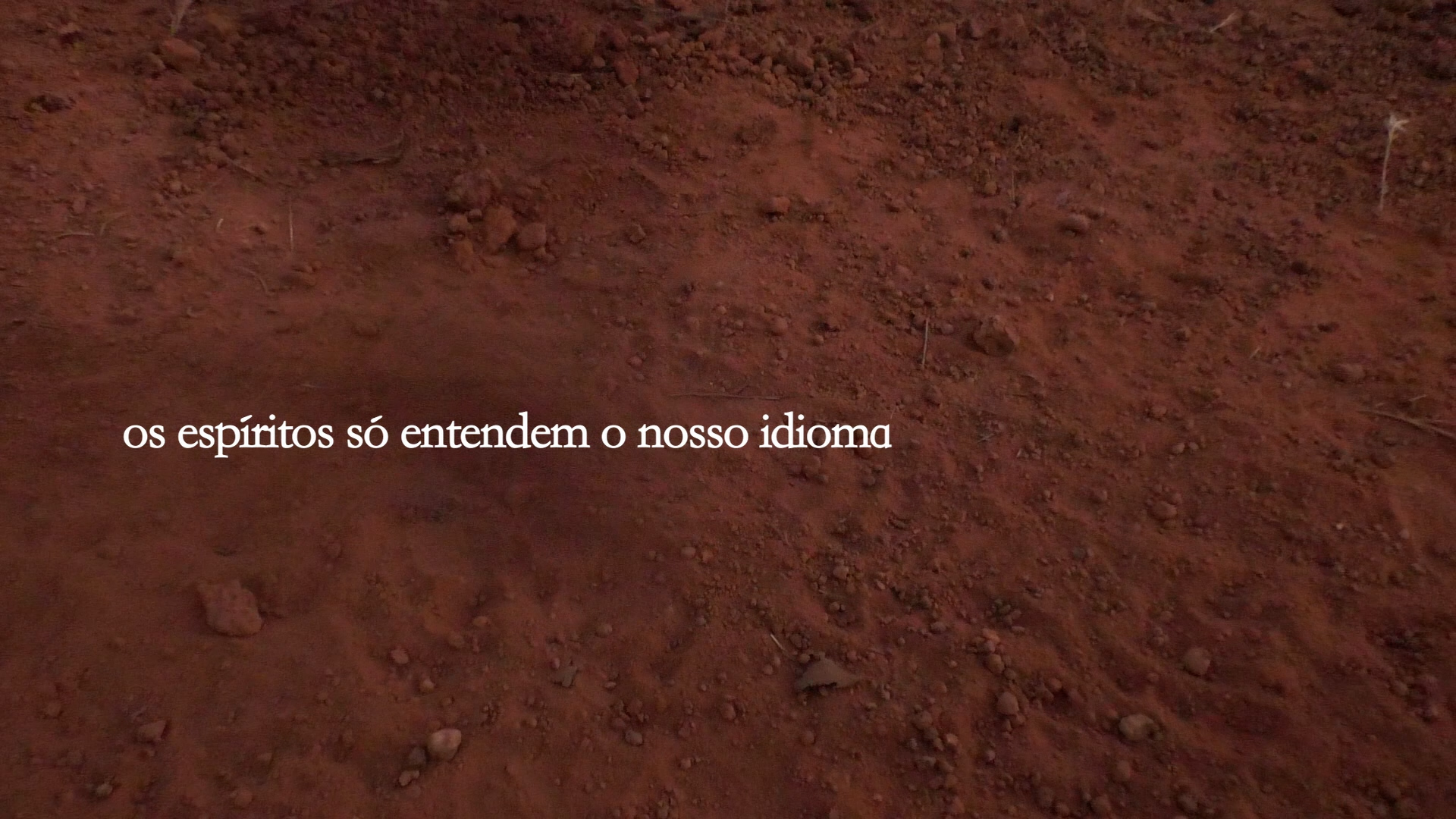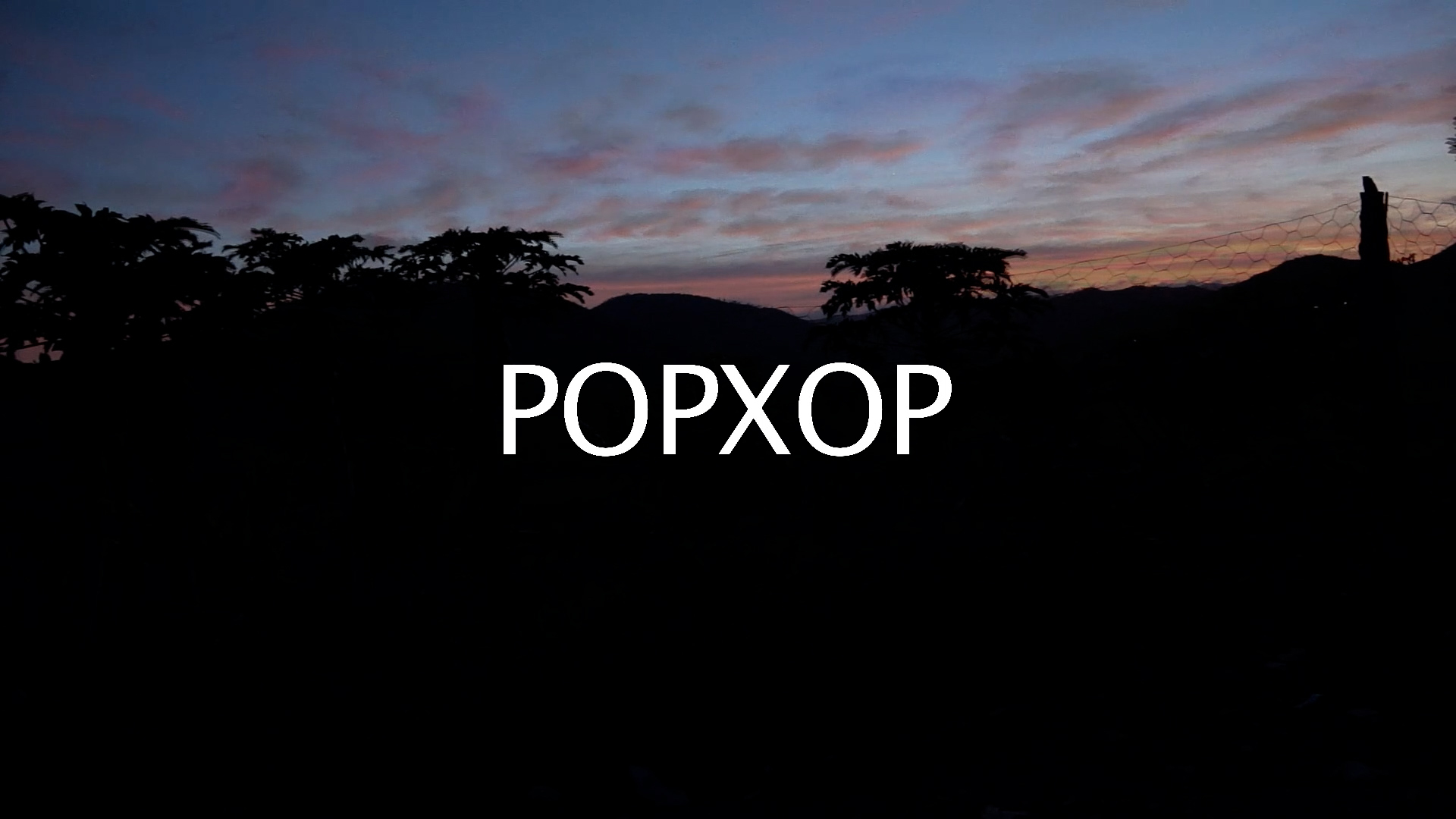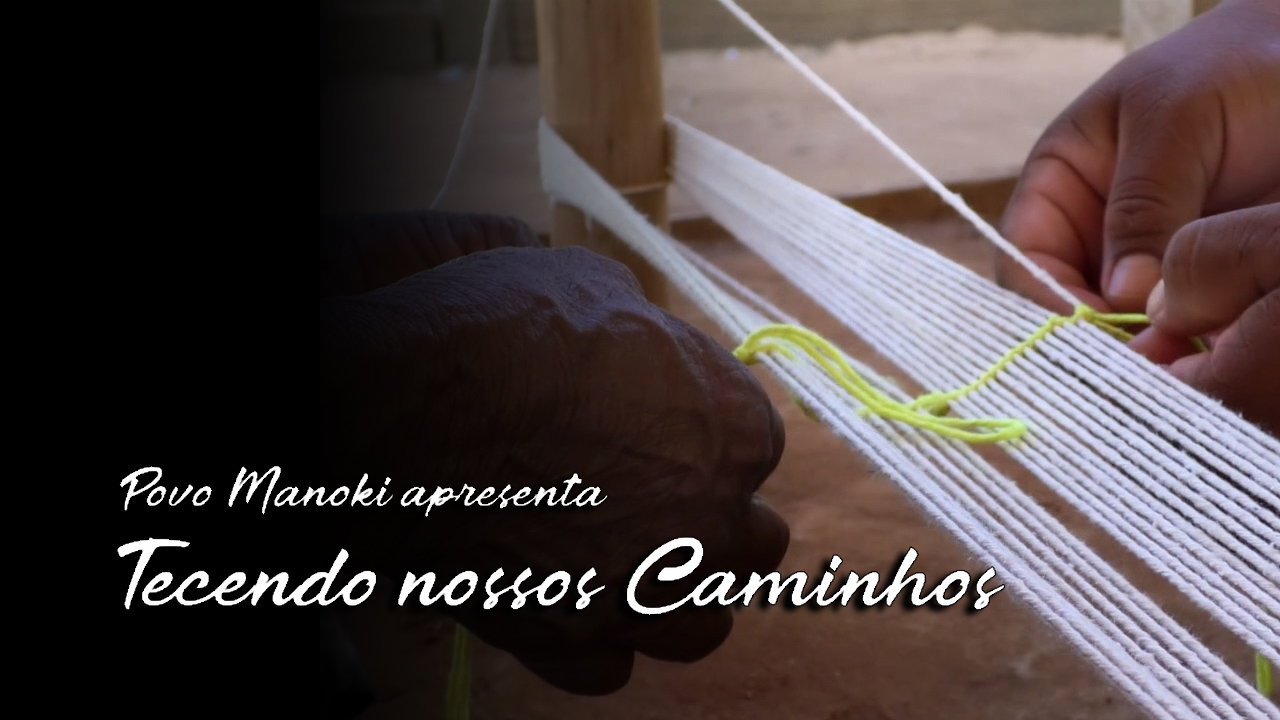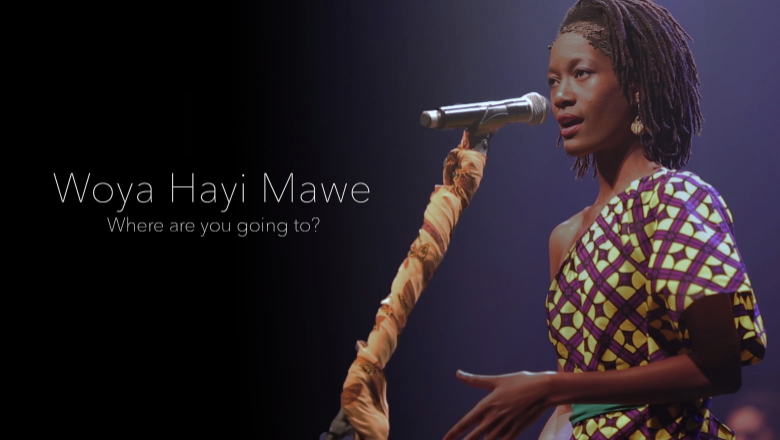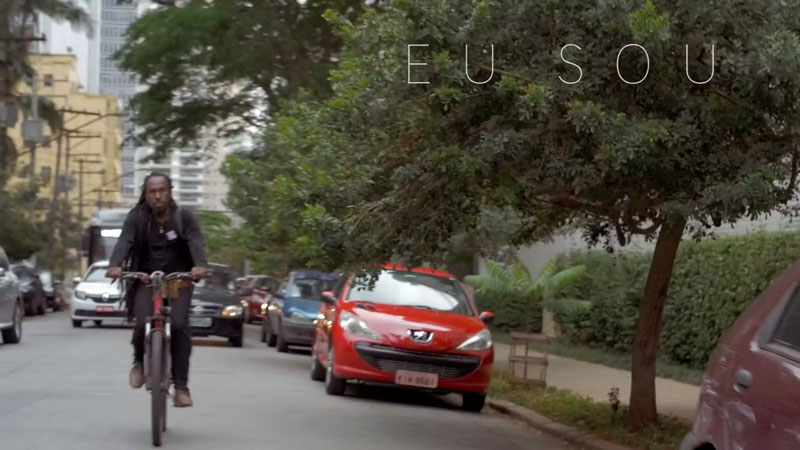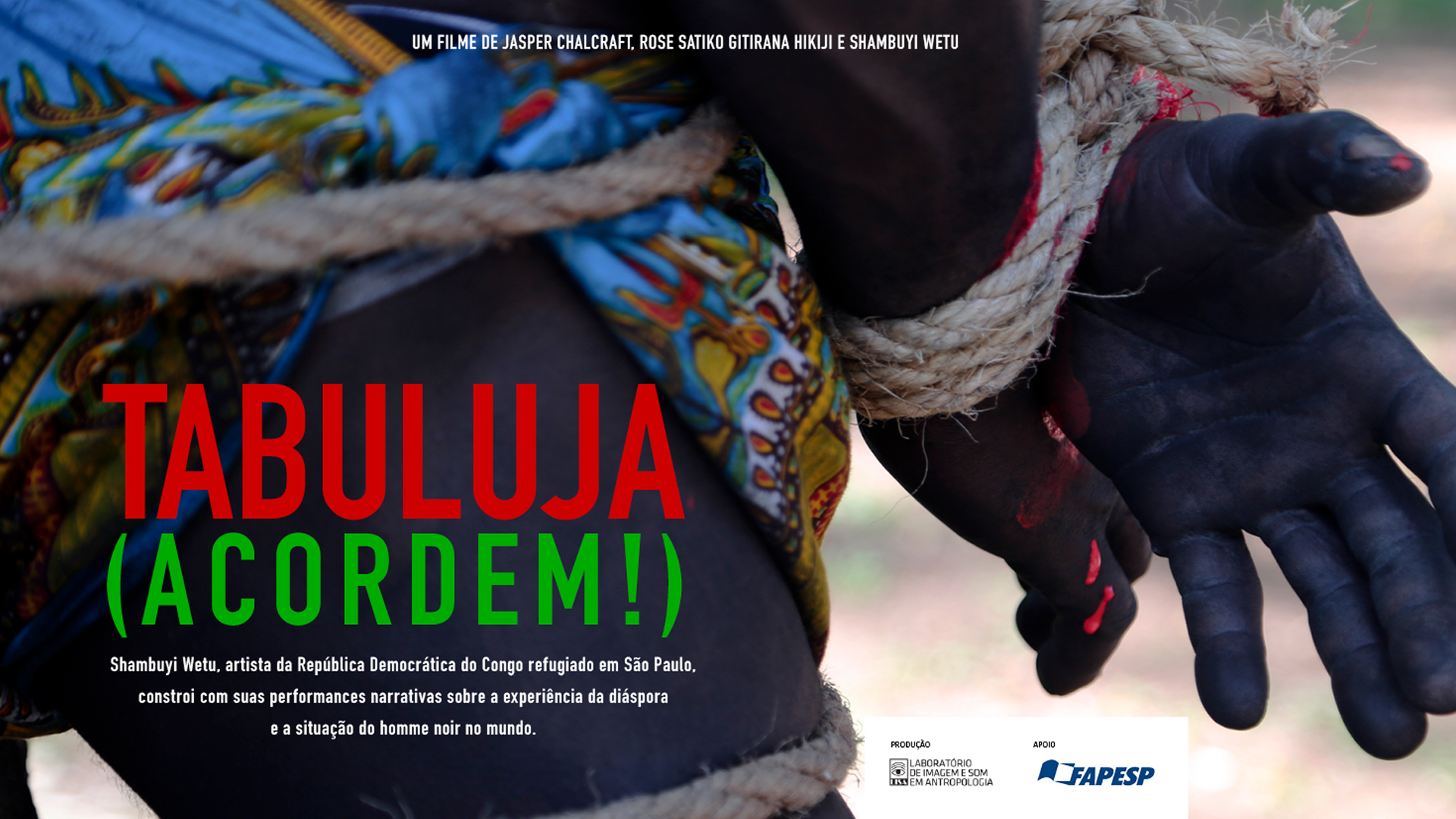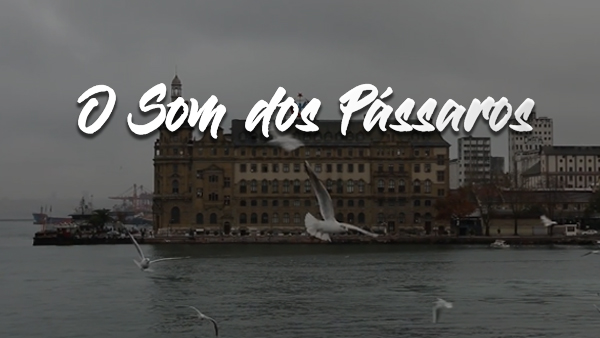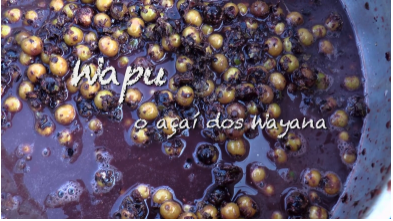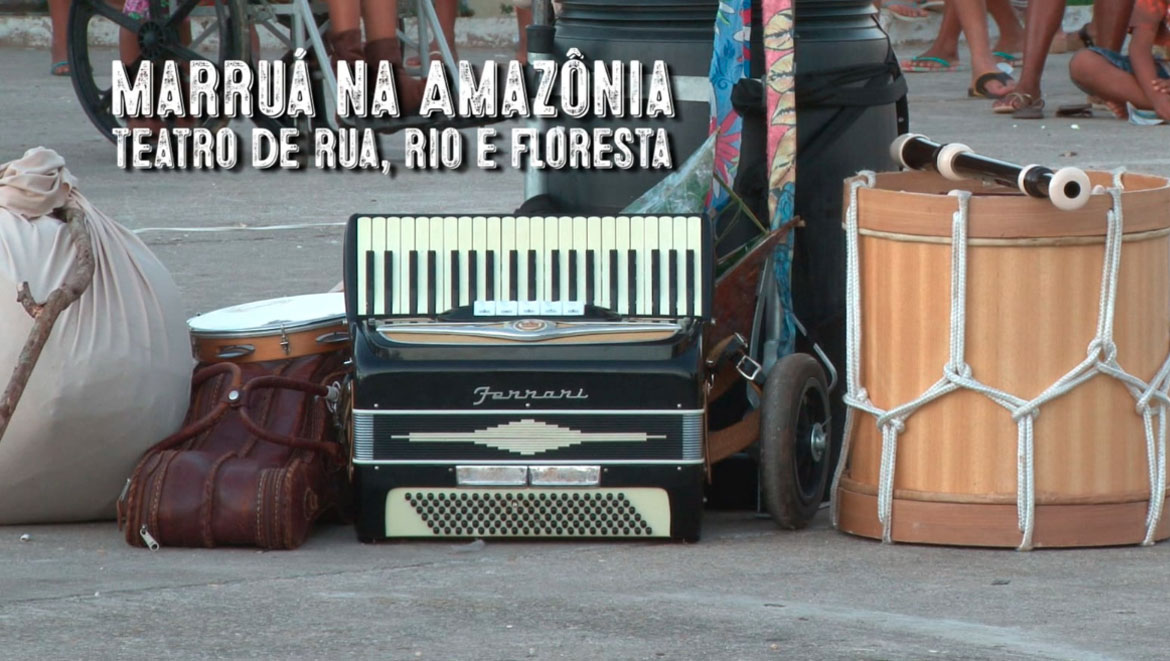Videos
A young leader and audiovisual director, Patrícia Ferreira has been recognized for the documentaries she has been making with her people, the Guarani Mbya. She was called to debate her work at one of the world's largest ethnographic film festivals, the Margaret Mead Film Festival, held at the American Museum of Natural History in New York. In that place, Patricia comes across some exhibitions, debates and attitudes that make her think about the "juruá" people’s world, contrasting it with the Guarani’s modes of existence.
Ãjãí is a fun game where only the players' heads can touch the ball. This practice, shared by a few indigenous people in the world, is present among the Myky and Manoki populations of Mato Grosso state, Brazil, who speak a language of an isolated linguistic family. Youngsters of the Myky people decide to film and edit their game for the first time, to publicize it outside the villages. But to organize this great party, its chiefs will find some challenges ahead.
Mapana is the name of an association of women from the Ticuna people. Located in Belém do Solimões (8 thousand people), it is the largest community of this indigenous group, the largest one in Brazil. This association provides products from its crops for school meals in all schools in Tabatinga (AM). With its results, size and volume of production, it is a unique experience that serves as an example for other indigenous and community associations.
This documentary, co-directed by indigenous researcher Nyg Kuitá Kaingang and anthropologist Paola Gibram, presents reflections and performances by members of the kaingang youth collective Nẽn Ga, from the Apucaraninha Indigenous Land, located in the north of the state of Paraná, in the southern region of Brazil . The kaingang voices – kanhgág vĩ – are presented in this documentary through the speeches of some of the members and people linked to the collective, as well as through songs – considered one of the main ways in which they present their ancestors [javé] and bring to his jagreh [guiding spirits] close to him. The film shows the strong connection between the Nẽn Ga movement and the indigenous school, exploring the ways in which contemporary kaingang reflect on the cultural and existential usurpations resulting from the many years of contact with the fóg [white, non-indigenous] people and the urgent need to resume the kanhgág practices and knowledge that were prohibited or violated – which they consider to have been “sleeping” and are now being “awakened”. The film shows scenes from the Festa do Pãri, one of the main revivals carried out by the collective. During the five days of the festival, the Kaingang camp on the banks of the Apucaraninha River, during which they prepare the pãri, an ancestral Kaingang fishing trap, made of braided bamboo. The documentary also shows Nẽn Ga's participation in indigenous political mobilization events, one of the main aspects of this collective's activities and formation.
Only six elders of the Manoki population in the Brazilian Amazon still speak their indigenous language, an imminent risk of losing the means by which they communicate with their spirits. Although this is a difficult topic, young people decide to tell in images and words their version of this long history of relations with non-indigenous people, talking about their pains, challenges, and desires. Despite all the difficulties of the current context, struggle and hope echo in various dimensions of the short film, indicating that “the Manoki language will survive!”
The Popxop, Macacos-Yãmĩyxop (Po'op-Yãmĩyxop), are singing allies of the Tikmũ´ũn / Maxakali people, now residents of the Mucuri Valley, in Minas Gerais. Periodically, they come to the villages to spend a long period, which can last for a few months, to manage the homesickness of their mothers and fathers, male and female shamans Tikmũ'ũn / Maxakali. They sing the stories, secrets, paths and views of the Atlantic Forest, imitating and narrating songs from other groups of Yãmĩyxop, singing-enchanted beings who also accompany and protect the Tikmũ´ũn / Maxakali. Bringing knowledge and experiences of joy, they ensure the health of the community and celebrate shamanic encounters that cross territory and time.
Only six elders of the Manoki population in the Brazilian Amazon still speak their indigenous language, an imminent risk of losing this important dimension of their ways of existence. Decided to reclaim their language with the elders, the younger ones decide to narrate their challenges and desires in images and words. Based on the analogy with the fragility of cotton that becomes a strong wire to support the weight in the hammock, Marta Tipuici speaks about the resistance of her people, her relationship with her grandmother and her hope to speak their indigenous language again.
Woya hayi mawe: where are you going to? These lyrics echo Mozambican musician Lenna Bahule’s explorations both in her birthplace - Maputo - and in her adopted home of São Paulo. From the stage to the urban outskirts, we see how Lenna deals with the difficulties of being a black female musician in both Brazil and Mozambique. The artistic world of São Paulo demands her Africanity, her African references, her roots. Yet in Mozambique Lenna is now known for her success in Brazil: she brings some of Brazil’s cultural power to the stage in Maputo. Returning to Mozambique, she rediscovers her home country with new eyes. Lenna meets and works with an inspirational new generation of Maputo-based musicians, who she involves in the production of a show in Maputo’s Centro Cultural Franco-Moçambicano. From this major cultural institution, to her grandmother’s farm and a social project in Maputo’s outskirts, we see Lenna and the Maputo artivists investigating Mozambique’s traditional and popular musics and discovering new musical and activist routes. Navigating between activism and the stage, between an imagined ‘Africa’ that Brazil demands of her, and a Brazilian cosmopolitanism São Paulo has given her, Lenna discovers - in a traditional Chopi song that travels - that her musical roots were even more powerful than she imagined.
Chaos and tranquility. Material and spiritual. Felinto transcends these universes by proposing, through music, introspection through the beauty of sound frequencies.
In this film, directed by Renato Albuquerque de Oliveira as a result of his scientific initiation research, supervised by Rose Satiko Gitirana Hikiji and produced through the extension course “Documentário de Criação”, taught by Carolina Caffe, we see Felinto's ideas about how the agency of music can influence the psychic and spiritual states of the human being, as a way of opposing the chaotic rhythm of São Paulo. Music, as this performer suggests, would be something like a river that flows in the opposite direction to the river that is the ethos of the city where he lives, functioning as a therapeutic tool against the anxiety generated by the way of life that unfolds there.
The Ticuna Indian Ondino Casimiro is a very unique person in his people. One of the great connoisseurs of the so-called Festa da Moça Nova, the ritual of female initiation. His fame as a singer took him far, performing in Manaus, São Paulo and even a tour in Italy. He knows like no one the basket weaving arts and is responsible for officiating the Catholic Mass on Sundays in the small chapel of the community. A dedicated teacher of the children of the community, every morning it is possible to hear him teaching in both languages, Ticuna and Portuguese. There is no doubt that Ondino is a erudite in his culture and a skilled translator of the white world for the Ticuna and vice versa.
In his performances Shambuyi Wetu, an artist from the Democratic Republic of Congo and a refugee in São Paulo, constructs narratives about the diaspora experience and the situation of l’homme noir in the world. Part of the Afro-Sampas collection, the film Tabuluja is a collaboration between the artist and the anthropologists Rose Satiko Hikiji and Jasper Chalcraft. The research and filming explores the experiences of African musicians, dancers and artists currently residing in São Paulo, and is part of the project “Being/Becoming African in Brazil: migrating musics and heritages”
afrosampas afro-sampas afro.sampas
An experimental film, a field diary in audiovisual format. The sound of birds is part of the doctoral research of Kelen Pessuto, who carried out his fieldwork in Turkey in 2004. The film is marked by loneliness, meetings, misunderstandings, Syrian children, the Kurds and Dengbêj, one of the major cultural manifestations of the Kurdish people, who use singing as a means of transmitting Kurdish language and stories.
The Afro-Sampas project promotes the meeting between African musicians living in São Paulo and Brazilian musicians. In this episode, Chico Saraiva welcomes Edoh Fiho and Sassou Espoir Ametoglo, from Togo, Yannick Delass and Shambuyi Wetu, from the Democratic Republic of Congo, into his apartment in São Paulo. From this first meeting, the song "Anitché Brasil África" was born.
afrosampas
Wapu, açaí in the wayana language, is a native fruit of the Amazon.The film's main character is this fruit and shows how everyday, ritual and music are intertwined in the past and present. The images and sounds of this video were captured by young Wayana group in July 2015 in the Suwi-suwi mïn village, Rio Paru d'Este Indigenous Land (Pará, Brazil). During this period audiovisual workshops were held so that they had the first contact with the recording equipment.
Performing street theater, a group of young artists travels at the Amazonian rainforest creating encounters and dances. Playing the siriri, cururu, coco, ciranda and boi the Grupo Teatral Parlendas invites the people to the square. With the play Marruá, they rescue and provoke the recount of the history of Brazilian's that live in territories of resistance and fight. Through these paths, the theater braids with the ritual and the party.


